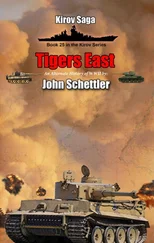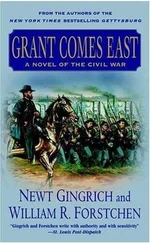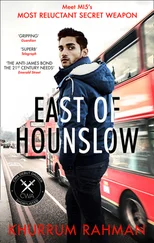Boyle Coraghessan - East is East
Здесь есть возможность читать онлайн «Boyle Coraghessan - East is East» весь текст электронной книги совершенно бесплатно (целиком полную версию без сокращений). В некоторых случаях можно слушать аудио, скачать через торрент в формате fb2 и присутствует краткое содержание. Жанр: Старинная литература, на английском языке. Описание произведения, (предисловие) а так же отзывы посетителей доступны на портале библиотеки ЛибКат.
- Название:East is East
- Автор:
- Жанр:
- Год:неизвестен
- ISBN:нет данных
- Рейтинг книги:5 / 5. Голосов: 1
-
Избранное:Добавить в избранное
- Отзывы:
-
Ваша оценка:
- 100
- 1
- 2
- 3
- 4
- 5
East is East: краткое содержание, описание и аннотация
Предлагаем к чтению аннотацию, описание, краткое содержание или предисловие (зависит от того, что написал сам автор книги «East is East»). Если вы не нашли необходимую информацию о книге — напишите в комментариях, мы постараемся отыскать её.
East is East — читать онлайн бесплатно полную книгу (весь текст) целиком
Ниже представлен текст книги, разбитый по страницам. Система сохранения места последней прочитанной страницы, позволяет с удобством читать онлайн бесплатно книгу «East is East», без необходимости каждый раз заново искать на чём Вы остановились. Поставьте закладку, и сможете в любой момент перейти на страницу, на которой закончили чтение.
Интервал:
Закладка:
He lurched forward, as overcome as he’d been by the scent of the Negro’s fateful oysters, beyond all sense and caring, till at the last moment he caught himself. All at once he dropped down with a grunt and hunkered low in the water. He was a mess. The stolen clothes were in tatters, he reeked as if he’d been dead a week, he was filthy and cut and torn in a hundred places. And his face—he was a Japanese, or half a Japanese—and they’d see that in a second and they’d know who he was and what he’d done and then the police would come and he’d be thrown in jail and brutalized by the half-breeds and child molesters and patricides that infested the dark gaijin cells like mold, COCA-COLA, flashed the sign, COCA-COLA. But what could he do?
Cautiously, he emerged from the ditch and sat heavily in a clump of waist-high grass. There was no one in sight, not a car in the gravel lot, and from this angle he could see that the door of the shop stood wide open. He had to get cleaned up, had to disguise himself somehow, had to get in there and buy out the store before someone showed up. Yes. All right. He would wash the mud from his clothes as best he could, and from his feet too. But when he glanced down at his feet and calves he saw that they were nearly black with some sort of clinging shapeless things—sea slugs, they looked like. He had never encountered leeches and didn’t know that they were sucking his blood—or rather that they secreted an anticoagulant so that his heart pumped blood into them, as if they were extensions of his own veins and arteries—nor did he realize that in casually peeling them off he risked dislodging their mouth parts and causing an infection that could suppurate, turn gangrenous and threaten the limb itself. No, he merely pulled them off, wistfully regarding the plump writhing morsels of their compact bodies—he’d always had a weakness for sea slugs—before dropping them back into the ditch. He didn’t need them. Food—real food—was in sight.
Next, he stripped off his clothing and attempted to wash the overalls in the ditch. The red shirt was beyond hope, and so he tore off a strip of it and wrapped it around his head, Ninja style, hoping it would help disguise him. Then he wrung the overalls out, shrugged back into them (no mean feat—it was like pulling on a wetsuit six sizes too small), and turned to the pages of Jōchō. The bills were still there, along with the cracked and bleached photo of his father. He smoothed them out, wondering at the arcane codes and symbols—a pyramid? wasn’t that supposed to be Egyptian?—only half believing that this was the real article. It was so—so whimsical, like the play money of a children’s game. There was a picture of a man in a wig on three of the notes, and he was wearing a high collar and a benign expression, THIS NOTE IS LEGAL TENDER FOR ALL DEBTS, PUBLIC AND PRIVATE, Hiro read. FEDERAL RESERVE NOTE. THE UNITED STATUS OF AMARICA.
He shrugged. Akio Ajioka, the BR aboard ship and his only friend in the world, had traded him the bills in exchange for two bottles of Suntory whiskey and a stack of thumbed-over manga. “This is the real thing, mate,” Akio had said with a grin, “this is what they use in Times Square, Broadway and Miami Beach.” Akio wouldn’t lie to him, he knew that. After a moment he stood and smoothed out the wrinkles in his pants. Clutching the bills in one hand and Jōchō in the other, he crossed the gravel lot to the store.
Inside, it was cool and fresh-smelling, lit only by the sunlight filtering through the windows. Hiro saw racks of food, junk food mostly, in garish plastic packages and brightly colored cans. There was a freezer, and against the back wall, two glowing huge coolers full of beer and soda, a shrine to thirst. Behind the cash register, a young woman—very young, sixteen, seventeen maybe—sat nursing a baby and watching him out of a pair of wide green eyes. “Kin Ah help y’all?” she said.
Food. Hiro wanted food. And drink. But he didn’t know how to respond. Kinahhelpyall didn’t compute, not at all, but he wanted desperately to ingratiate himself, get through the exchange and then bow his way out the door, vanish into the bushes and gorge himself till he burst. He knew he had to have his wits about him, had to demonstrate his savoir-faire, convince her that he was all right, that he belonged and knew the ways of the gaijin as well as they knew them themselves. Already the pressure was killing him. He was sweating. He couldn’t seem to control his facial muscles. “Somesing eat,” he said, trying to sound casual, and he snatched a loaf of bread and a bag of nacho chips from the shelf, all the while bowing and bowing again.
The girl took the baby from her breast—he saw the little fists clench, the feet kick, caught a glimpse of the pink wet nipple and the pink wet puckered mouth. “Bobby,” she called toward the back, “we got a customer.”
Hiro cradled the bread and nacho chips to his chest. He moved ponderously down the aisle, the wet overalls pinching his crotch, bowing automatically. He was moving toward the cooler, his tongue dry as chalk. Be cool, he told himself. Act natural.
The girl had set the baby down in its crib behind the counter and was leaning lazily over the cash register. “Y’all must be a toor-ist?” she said with rising inflection.
Toor-ist, toor-ist, Hiro thought, swinging open the door of the cooler, the miraculous refrigerated draft on his face, the six-pack of Coke in hand. What was she saying? He hadn’t a clue, but he knew he had to answer, knew he had to say something or he was doomed.
It was then that Bobby stepped out of the back room, wiping his hands on an apron. Bobby was nineteen, as fair and beautifully proportioned as an archangel, but with an IQ so low it prevented him from unfurling his wings. He had trouble with simple sums and he couldn’t read the newspaper or punch the cash register. His job was to stock the shelves and watch Bobby Jr. whenever Cara Mae had a customer. He stood there in the doorway, blinking at Hiro.
Say something, Hiro told himself, say something, and all at once he had an inspiration. Burt Reynolds, Clint Eastwood—what would they say? Americans began any exchange of pleasantries with a string of curses, anyone knew that—and even if he hadn’t known it, even if he were an innocent, he’d seen Eastwood in action. “Mothafucka,” he said, bowing to the girl as he shuffled forward to dump his booty on the counter. And to the bewildered boy, in the most amenable tone he could summon, he observed: “Cock-sucka, huh?”
The girl said nothing. She remained motionless behind the cash register, her jaws poised over a tiny pink wad of chewing gum. The boy blinked twice, then scurried across the room and snatched up the baby as if it were in danger. All the while, Hiro grabbed for Slim Jims, Twinkies, anything, and built a mound of cans and bottles and bright shiny packages on the counter before him.
The girl rang up the purchases. “Ten seventy-three,” she said, and her tone was icy.
“Shitcan,” Hiro said, grinning now and bowing again, as he produced the four bills and laid them out on the counter. “Toilet. Make my day, huh?”
The girl crushed the gum between her teeth. Her eyes had narrowed. Her voice hit him like a slap in the face. “This is only eight.”
“Only eight?” he repeated. He was bewildered.
She let an exasperated hiss of breath escape her. The baby, pressed to his father’s shoulder, began to fuss. From outside came the sound of squealing brakes, and Hiro glanced up to see a gleaming new oversized pickup nosing its way up to the store.
“Ah need two seventy-three,” she said, “more.”
All at once Hiro understood. The little green gaijin bills were insufficient. He’d have to part with something and he needed it all, needed everything in the store and more. Didn’t they realize? Couldn’t they see he was starving? Outside, the engine coughed and died. “Some,” he said, pushing away a package or two.
Читать дальшеИнтервал:
Закладка:
Похожие книги на «East is East»
Представляем Вашему вниманию похожие книги на «East is East» списком для выбора. Мы отобрали схожую по названию и смыслу литературу в надежде предоставить читателям больше вариантов отыскать новые, интересные, ещё непрочитанные произведения.
Обсуждение, отзывы о книге «East is East» и просто собственные мнения читателей. Оставьте ваши комментарии, напишите, что Вы думаете о произведении, его смысле или главных героях. Укажите что конкретно понравилось, а что нет, и почему Вы так считаете.











